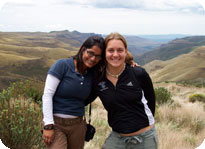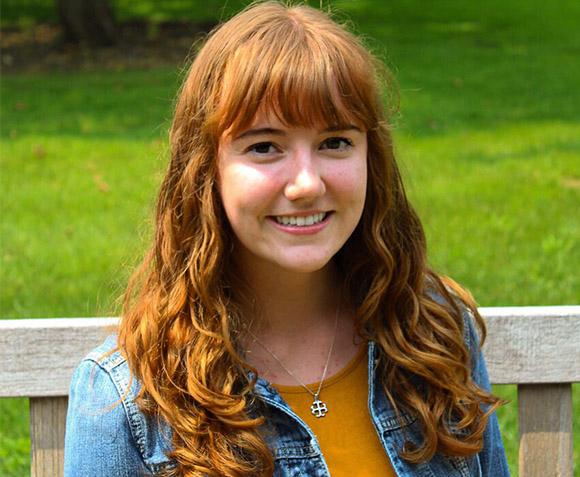Crossing Boundaries
 “Putting yourself in another culture is so key to learning about yourself, what your faults are, and what your strengths are,” says Loretta Brown, a Saint Mary’s junior who just returned from a semester abroad in South Africa.
“Putting yourself in another culture is so key to learning about yourself, what your faults are, and what your strengths are,” says Loretta Brown, a Saint Mary’s junior who just returned from a semester abroad in South Africa.
“Our learning not only happened in the classroom; it also happened outside the classroom. Every day we were experiencing something a little different or new that we had to get used to,” adds Sarita Fritzler, a junior who also participated in the program, based at the University of KwaZulu-Natal.
One of the first things they had to get used to was their classmates’ curiosity. Loretta is white; Sarita is of Indian heritage. When they walked around campus with two other American friends from the program—one white, one black—they were surprised to find their group drawing stares from South Africans.
Sarita explains, “South Africa had the blacks, whites, Indians, and ‘coloreds’ as their racial groups during apartheid. The campus is still pretty segregated, even though it’s been twelve years of democracy.”
“We learned to look past the stares, look past the differences, and continue hanging out,” she says. “We called ourselves the mini-UN just because we were so diverse and didn’t care about the other people’s reactions … We were a positive sign that it’s OK to mix and cross racial lines and be friends.”
Besides, the two were as interested in crossing intellectual boundaries as racial ones, immersing themselves in classes with South African faculty and students.
Sarita, who is a political science major and women’s studies minor, took courses in ethics, South African history, and African religions at the University of Kwa-Zulu Natal. She had a policy and service-learning class that included an internship at Black Sash, a human rights organization.
Loretta, an environmental biology major, studied Zulu heritage and culture, biodiversity conservation, and ethnobotany—which had a field component that got her out to traditional herbal medicine and crafts markets. She also played ultimate frisbee, the only woman on the university team.
On weekends and vacations, the two Americans traveled—to nearby Durban and the Drakensberg Mountains, and to neighboring Mozambique, Lesotho, and Swaziland. The experiences taught them to respect, rather than fear, a new culture and country. Even on safari in Hlwehlwe-Imfolozi National Park, Loretta says, “The only time I didn’t feel safe was when the elephant was angry at us for being in his path.”

